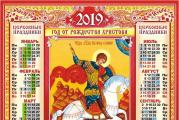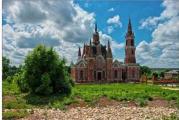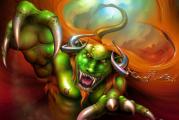There is still a whole life ahead. A poem that touches the living: “Years pass - and we did not live .... The last chords of the war
Boris Petrovich Pankov (1925-1992) - a native of Bryansk. Prisoner of Wewelsburg and Sachsenhausen concentration camps. Author of the books "Condemned by a special meeting", "They died under the fence", "The path traveled under escort"
A fulfilled prediction
Summer of 1943… Sachsenhausen concentration camp. Boris, looking around apprehensively, carefully made his way to the dog kennel, where german shepherds. The Nazis everywhere used them for various needs both in the rear and at the front, in particular - in the protection of concentration camps. Boris was recently enrolled as a bricklayer in the working team of prisoners Hundezwinger (Hundezwinger) - translated into Russian - a dog kennel. He was extremely emaciated and was extremely hungry. With a height of 180 cm, he weighed about 50 kg.
At the very beginning of the war, Boris, as not subject to conscription (he was then 16 years old), was enlisted in the destruction battalion to capture and eliminate fascist saboteurs and scouts. Once, when he was in a remote village not far from the front line, he was seized by saboteurs and taken on a sleigh to be shot in the nearest forest. It had already snowed, it was quite cold. Three people were taken to shoot. One sat opposite with a machine gun, the other - a little to the side with a pistol in a holster on his belt, and the driver controlled the horse. Before the execution, they asked about last wish. Boris asked for a cigarette (later he never smoked again).
Dragging on a cigarette, he suddenly felt some inexpressibly oppressive feeling and so desperately wanted to live! Punishers somewhat calmed down and lost their vigilance.
Taking advantage of this, Boris, making a sharp jerk, grabbed the machine gun and, with all his strength, hit the fascist in the face with it. The saboteur collapsed stunned. He kicked another into a snowdrift. Jumping off the sleigh, Boris rushed into the forest.
Having recovered, the punishers opened random fire, but luck was on the side of the fugitive... Throwing off heavy boots, he ran barefoot through the snow for about three kilometers to the house of a familiar forester, where he hid for a while from his pursuers.
When the Germans occupied the region, he hid with relatives in the village. Once he tried to return to the city, but was rounded up and was taken to Germany. The Germans in the occupied territories periodically conducted raids. At special labor exchanges, detainees were registered, sorted and sent to all kinds of enterprises and industries of the Third Reich. All this was very reminiscent of the slave trade during the heyday of the Roman Empire, but, of course, on a different scale. There were hundreds of thousands of prisoners.

Boris is lucky. On the stock exchange, he was assigned to a bauer, a German peasant, to work on an agricultural farm. The owner treated the workers as if they were his compatriots. Worked with everyone. Members of his family dined at the same table with the arrivals. The main thing is that everyone was full, and thank God. Some worked this way until the end of the war. But Boris soon decided to flee to the front, to help his people defend their homeland. He knew neither the language, but a few words, nor his location. The farm was located almost in the center of Germany, and it was oh how far to the front. The Germans at that time stood near Moscow. After a long wandering through the local forests and fields, hungry and exhausted, he was caught by the police and sent to the Dortmund prison, and then to the coal mines. From there he escaped, but was again captured by the city police and placed in the Wewelsburg death camp, where he worked in quarries. A few months later, some of the surviving prisoners from this camp were sent to Sachsenhausen.
... Boris got close to the cages with the dogs. The shepherd dogs had just been brought food, and they began to greedily eat it from metal bowls. Nursery workers who were engaged in feeding quickly left the territory. Dog mash was prepared from oatmeal, potatoes, carrots and some kind of yellow flour with finely ground bones and pieces of meat. In shape, it resembled a viscous clay mass. Boris crept up to the first nearest cage. Hunger shackled all his consciousness. He took a stone lying under his feet and threw it into the far corner of the cage. The dog, leaving food, rushed towards the fallen stone. Boris instantly grabbed the dog bowl and began greedily grabbing it with his hands and stuffing its contents into his mouth. Most of the porridge has already been eaten by the animal. The dog returned to its original place and began to bark. But this did not bother Boris, because barking was heard in many corners of the kennel, and no one paid attention to it.
The dog team was one of the few in the camp where they had the opportunity to feed themselves additionally. Camp food was very scarce, and severely malnourished prisoners on such rations quickly died. Many prisoners received help through the Red Cross, but internees and prisoners of war from Soviet Union such assistance was not received, since the state, represented by Comrade. Stalin refused them as traitors. Therefore, the situation of prisoners from Russia was the worst.
Boris quickly swallowed the porridge and put the empty bowl back into the cage. And suddenly it seemed to dawn on him. It seemed to him that something similar had happened in his life before. I involuntarily remembered my childhood when he was 6-7 years old. At that time they had such a tradition. On weekends, all the grown-up sons and daughters of his paternal grandfather and their families would gather to eat together in their parents' large garden. Among them are the father and mother of Boris. All of them already lived separately from their elderly parents. Grandfather was very strict rules. Before the revolution, he even served for some time in the police department, for which he was persecuted by the Bolsheviks, but due to his advanced age he was not repressed.
Usually relatives first talked about everyday topics, played musical instruments, sang, and then dined. Once playing at the table with his brothers, Boris dropped a piece of bread on the ground and, in order not to pick it up, imperceptibly began to push it under the table with his foot. This action did not escape the grandfather's attentive gaze. Grandfather got up from his seat, hit his grandson with a good cuff on the back of the head and said in his hearts: “Remember, you scoundrel, the time will come, there will be no bread, you will take food from the dogs ...”
Boris recalled that episode with horror and realized that his grandfather's prediction had come true. This shocked him to the core. How could this be?..
Before he was accepted into the “dog” team, he, along with other prisoners, was sent to clean latrines, water gardens, and shovel garbage pits in the vicinity of the camp and camp areas. The team was called Wasserwagen. There were fifteen people in it: fourteen Poles and among them one Russian - Boris. In a special team they dragged a huge garbage barrel. In front of the barrel, a long drawbar was attached from below. Each prisoner put on a wide canvas belt with a strap at the end. The strap clung to the drawbar hook. Once the team ended up on the territory of Gundecwinger. Under the deafening barking of numerous dogs, they cleaned the garbage pit. On our way back, we involuntarily stopped near the kitchen, where they cooked food for the dogs. The smell was so seductive that it was simply impossible not to stop. From the kitchen, a prisoner came out to meet them and hurriedly glanced at the whole team. Stopping his gaze on Boris, who had the letter “R” on his chest, he asked in Russian: “Where are you from?”. Boris answered in the old fashioned way that from the Oryol province of the Bryansk district.
They happened to be countrymen. The prisoner from the kitchen quickly removed the tin bucket that was hanging on a nail under the barrel, and immediately left. These buckets were used to clean garbage pits and latrines, watered the camp gardens. Less than a minute later, he returned, and Boris had an eight-liter bucket in his hands, completely filled with porridge intended for feeding dogs in the kennel. Without remembering himself, he brought this mess to his lips and swallowed, swallowed, completely without feeling the saturation of food. The Poles were still far from such severe exhaustion and did not dare to try dog porridge from a slop bucket. Boris was saved from certain death by a forarbeiter (senior of the team), who shouted: “Come on, panovier, let's go. Enough to admire this terrible predator, he has little time left to live. He just ran out of patience."
These words sounded like a death sentence. With resentment and grave chagrin, Boris looked into the bucket, where there was still a good half of dog porridge, and stopped ...
A few months later, by chance, he ended up in the Gundecwinger working team, which ultimately saved his life.
Last Chords wars
Escapes from the camp were very rare. Escape or attempted escape was punishable by death. Executions were always carried out before formation. Once they executed a German, a criminal. He was drafted into the army straight from the concentration camp. He was sent to the team of the punisher Derliwanger, but he deserted, was caught and returned to the camp. Standing in front of the gallows on a special stand, the condemned only had time to shout "Goodbye, comrades!" At that moment, the executioner knocked out the stand from under his feet. The body of the prisoner, wriggling, jerked violently in the noose, and the rope suddenly broke. The executed man flew off to the rack of the gallows, finding himself in a sitting position on the ground. The first deputy commandant of the camp, August Gen, walked up to him with a dancing gait and, with some self-satisfied excitement, calmly shot the unsuccessfully executed man in the head.
Boris was standing in the last, most extreme, five of the sixty-eighth block, almost next to the gallows, and did not notice that behind him was a crematorium worker with a special cart and a black coffin on it to pick up the corpse of the executed. An overly obliging worker so dispersed the cart that Boris did not have time to jump back - he ended up riding on the lid of the coffin and drove up to the gallows itself. He immediately hurriedly jumped off the coffin and found himself face to face with Hans Baumketter, the chief doctor of the concentration camp.
“Well, now it’s your turn,” Baumketter said with rude irony, identifying by the number on his chest that the prisoner was Russian. - Yes, it's a pity, the rope broke ... "Boris quickly got back to his original place in the ranks, but this story unpleasantly stuck in his memory.
Baumketter was not only the chief physician of the Sachsenhausen concentration camp, but was also the deputy head of the medical unit of all camps in Germany. Baumketter gained special prestige when, at the end of the war, he received an order from Hitler's headquarters to test the effect of poison - potassium cyanide in ampoules - on the prisoners of the camp. This was told by criminals - the Germans, who had a connection with the leadership of the camp. The Nazis themselves prepared for death in order to avoid responsibility for their great crimes.

At the end of 1944, when the war had already reached the territory of Germany, the allied American aircraft raided the city of Oranienburg, where there were many military enterprises. The concentration camp was located just outside the city. The raid took place in the evening. The prisoners in the barracks were already getting ready for bed. And suddenly someone came up to the window and exclaimed: “Brothers, look how many stars are on the horizon!” Many immediately rushed to the windows. Among the prisoners were former pilots. “Now you will see what kind of stars these are,” someone’s confident voice was heard, “this is allied aviation ... They will bomb reptiles.” In a moment, searchlights lit up the whole sky, anti-aircraft guns clapped. The howl of downed planes and the first bombings were heard. Then the city was lit up with flames, and everything rumbled at once. The prisoners shouted in unison: "Hurrah, beat the bastards!" But their joyful excitement quickly gave way to despair. Aircraft soon appeared over the camp and began dropping bombs on the zones. The barracks were on fire. All their inhabitants rushed to the exit. Pandemonium formed in the aisles, a stampede began ... The guards and the administration fled in all directions. In a matter of minutes, the camp was completely defeated and destroyed. Thousands of prisoners died. Boris is one of the few miraculously survived. Probably, he was kept by the prayer of his mother, who, being in occupation, constantly prayed for her only missing son.
Having jumped out of the barracks one of the first, Boris jumped desperately from one bomb funnel to another. Explosions were constantly rumbling around, raising huge pillars of earth to the sky. He, where crawling, where in small dashes, reached the nearby forest and hid among the trees. The camp was all on fire, in the distance the groans of the wounded and dying could be heard. The flight has stopped. Unexpectedly, Boris came face to face with a German prisoner who had escaped, like him. As it turned out later, he was an anti-fascist communist, for which he was sent to a concentration camp. The imprisoned German said that he lived before his arrest in Berlin, where he had friends, and offered to move towards the fascist capital. Boris had no choice, and he accepted the offer of his unwitting companion. They decided to walk through the forest along the road leading to the main city of the Third Reich. Suddenly, they heard the sound of a moving car behind them. Hiding behind the trees, they saw a truck that was slowly driving in the direction they needed. The cabin doors were open. The driver, sticking his head out, looked at the sky all the time so that, if necessary, he could immediately leave the car. Taking advantage of the fact that the driver's attention was entirely focused on the possible appearance of enemy aircraft, the prisoners imperceptibly jumped out onto the road, overtook the truck and climbed into the body under the tarpaulin. It was mostly work clothes. They burrowed into it, carefully disguised themselves. After a while the truck stopped, German speech was heard.
The fugitives realized that they had reached the checkpoint. The sentries opened the tarpaulin, checked the driver's pass, rummaged around a little in the overalls and gave permission to enter the city. The car drove on. So they ended up in Berlin. The prisoners slightly opened the tarpaulin and began to observe the surroundings. The city was badly damaged by bombing. On their way they did not meet a single whole or intact building. Suddenly, Boris' companion gave a sign that it was time for them to get out. They changed into overalls, quietly jumped out of the car and hid among the ruins. The German explained to Boris that he needed to find his friends, he would return with them and they would take him with them. It is dangerous to walk alone, because Boris does not know the language well enough, and there may be surprises.
Boris waited for two days without food or water. But, in the end, everything ended well. He settled with the communist Germans in one of the safe houses, became a member of the Berlin underground. In the evenings they went out on missions, and at night they listened to the radio of Moscow and the allies.
On the eve of the storming of Berlin, friends bandaged Boris as if he was seriously wounded, and went down to the bomb shelter. His mouth and eyes were not visible, so that it would not accidentally be revealed that he was a foreigner. When the Red Army entered the city, they were the first to come out of hiding and immediately contacted the command. As a participant in the anti-fascist resistance, Boris was soon assigned to a motorized rifle regiment. The testimony of German underground communists who had a secret connection with Soviet intelligence was a fairly weighty argument in favor of such a decision. By the way, it happened that ordinary prisoners of German concentration camps were repressed and sent to Soviet prisons and camps.
Arriving in his native city, Boris had difficulty finding his mother, who had been praying for him throughout the war and believed that God would save her only son. I met my father only a few months later. My father was the head of an armored train and remained after the war to work in the Koenigsberg shipping company.
How to describe the meeting of the only son with his mother after everything experienced? Probably, such a meeting will be after the Last Judgment for those whom the Lord has mercy on.
Boris was then only 20 years old, and there was still more to come. whole life.
Vladimir Borisovich Pankov
I'm almost thirty-six. Rather, so - 36(because visually the numbers look more significant). Not too much, but not too little either. This is especially noticeable when standing in front of a mirror. But the main thing is not visible in the mirror - what is inside.
And there, if someone could overcome this invisible barrier, he would see an ordinary fifteen-year-old boy with a guitar in his hands.
“At the age of fifteen I opened the door of my soul,
And at the age of twenty he closed two doors.
No one understood those who live and lived there ...
There's Peter Pan, there's Huckleberry..."
(from the song "Today", 2001)
This is how I see myself. I'm forever fifteen. No matter how many birthdays I celebrate, no matter how far back in 1980 I was born, I will always be Fifteen. Because that's how I always feel. It is impossible to explain this, and is it necessary?
Although outwardly everything has changed and before everything I myself, but I look at the world with the same eyes, I see and feel the same as twenty years ago ... It's a paradox, but it's true!
And every year it seems more and more surprising to me that this strange, almost unfamiliar boy, looking at me from old photographs, could at the age of fifteen write lines for which I, at thirty-six, am not ashamed to this day:
"Crystal shattered ...
We walked on broken glass
And saw January
And the days crashed into the body like bayonets,
And a tear rolled down her cheek...
Oo-o-o-o-o-o-o-o-o-o-o-o-o-o-o-o-o-o-o-y
(from the song "Crystal Crashed", 1995)
And how great it was to sing these lines for the first time, sitting on a bench in the yard kindergarten, where in the evenings we gathered with all our noisy young and carefree company! Of course, I don’t remember exactly how it was, but I remember one thing for sure - that it was cool! And so it was every day - meetings with friends, fun and a feeling of absolute happiness, which only children can have, which in fact we were then. Despite the fact that they themselves, of course, did not consider themselves as such!
Old photographs refresh the memory and slightly open the dusty veil of the past. And now, absolutely distinctly, I remember that brown leatherette jacket with a faux fur collar, blue “varenki” and a motley, and therefore ridiculous Chinese sports jacket, and the same ridiculous low shoes.
But, how cool I then seemed to myself! Yes, what is there - I was like that! (: Because he played the guitar and sang songs the best of all, and, therefore, he was a welcome guest in any company. I would like to hope, of course, that not only because of this, but also because, in principle, he was a good guy! ( :
Maybe it's nostalgia, I don't know. I only know that then I was not only in my soul, but in fact was fifteen years old, that I lived for today, and every evening I was intoxicated with new emotions and impressions! And there was an amazing feeling that the past does not yet exist, and the future is somewhere very far away ...
AND THERE IS A WHOLE LIFE AHEAD...
It seems like there's a whole life ahead of you. But time is just running out!
We definitely began to live better. Technological progress, medicine, education - so many interesting things have appeared in the world!
That's just life modern man turned into one big rush ... A lot of things, work, home, family, life.
There is no time or energy left to just stop and think how wonderful this life is!
As one wise man said: "We work jobs we hate to buy things we don't need, to impress people who don't care about us."
It seems like there's a whole life ahead of you. But time is just running out...
Let's be happy right now! Love, laugh, make friends, learn something new every day! Let this beautiful poem by Irina Shevkunenko inspire you:
Little laughed, little loved.
Seen little, read a little more,
And for some reason they were so tired.
We were in a hurry, but we were losing time;
Fortunately, they tried, but they suffered a lot.
They searched for the truth, doubting themselves;
They waited for the holiday, surrendering to longing.
Often we were dissatisfied with ourselves:
They ascended, then they fell painfully.
We were afraid of many things in life,
Rarely did we trust our fate.
We wanted to understand and master everything,
All amicably and wisely arrange.
Years pass - and we did not live:
Laughed a little, loved a little...




